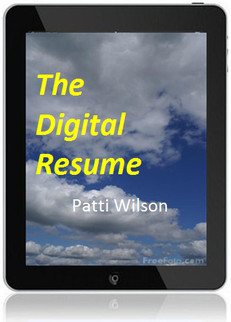 Why are professionals so easily convinced that if they add on one more certification or degree they will somehow be more employable or desirable? My field is among the biggest offenders and first initiators of this practice that includes the breadth of services consulting: management, projects, counseling, coaching, IT, financial, etc. I don't mean certifications in technical, scientific tools and methodologies. I am speaking to certifications that fluff up one's perceived expertise, importance and value to the marketplace. Just to name a few in my field as it's so easy to find them, but I am sure you can find them in yours as well: Master Career Counselor (MCC), Professional Certified Coach (PCC), National Certified Career Counselor (NCCC), Master Personal Branding Strategist, Board Certified Coach (BCC), Career Management Fellow Practitioner (CMF), Career Development Facilitator Instructor (CDFI), Distance Credentialed Counselor (DCC), Master Resume Writer (MRW), Credentialed Career Master (CCM), Certified Employment Interview Professional (CEIP), Certified Job & Career Transition Coach (JCTC) Let's take my favorite the Distance Credentialed Counselor. Since I work with clients all over the planet, I use a phone, SKYPE, a web-cam, web meeting sites, and file sharing tools. Does that require a certification? Really? Or do you just need a good IT person to set you up and provide tech support? Here is how the certificate is described: A Distance Credentialed Counselor (DCC) will be nationally recognized as a professional with training in best practices in Distance Counseling. Distance Counseling is a counseling approach that takes the best practices of traditional counseling as well as some of its own unique advantages and adapts them for delivery to clients via electronic means in order to maximize the use of technology-assisted counseling techniques. The technology-assisted methods may include telecounseling (telephone), secure email communication, chat, videoconferencing or computerized stand-alone software programs. Those unique advantages are further described as flexibility, convenience and asynchronous communications. Okay, but do you really need a certificate? The phenomena is epidemic in professional services today because enterprising people in an industry discovered that the best way to make money is to sell certifications, products and tools to other professionals. Industry trade associations and Universities extension program certifications have blossomed into a hundred million dollar cash flow based on revenues from tuition and their profits help underwrite programs within the organization and the university. At least, we can know that there is an academic, knowledge-based foundation to these programs with the organization or university's brand at stake. However, all this has been been eclipsed by enterprising professionals who leverage a certificate out of their business and books...often not even that much. For example, a business colleague extended his consulting practice on product management to tools, online training, books and now a certification. The degrees Competing for a piece of one pie leads all of us to try and get an advantage, but branding differentiation is not best done solely by degrees (or certificates)...no pun intended.
10 Comments
_The Mountain Dew soft drink brand dissolved a legal challenge from a customer who claimed a mouse was found in his can of the "Dew". The company argued that would not be possible as their product would have dissolved the mouse in less than a week. Coca Cola has the same reputation with pennies.
This does not explain why I continue to drink this stuff but it does make an analogy to the act of appreciating. When we appreciate and acknowledge others it has the same corrosive effect on rancor, resentment and grudges as the dissolving of a mouse in a cola can. Appreciation dissolves low morale, under performance and obstructions inside a company. This article in the Harvard Business Blog describes this in more detail. One quote sums it up how appreciation is an antidote to a toxic organization: "The impact of negative emotions — and more specifically the feeling of being devalued — is incredibly toxic. As Daniel Goleman has written, "Threats to our standing in the eyes of others are almost as powerful as those to our very survival." Read the entire article here.
 _ Imagine a world in which any intellectual property holder can, without ever appearing before a judge or setting foot in a courtroom, shut down any website's online advertising programs and block access to credit card payments. The credit card processors and the advertising networks would be required to take quick action against the named website; only the filing of a “counter notification” by the website could get service restored. It's the world envisioned by Rep. Lamar Smith (R-TX) in today's introduction of the Stop Online Piracy Act in the US House of Representatives. This isn't some off-the-wall piece of legislation with no chance of passing, either; it's the House equivalent to the Senate's PROTECT IP Act, which would officially bring Internet censorship to the US as a matter of law. Calling its plan a “market-based system to protect US customers and prevent US funding of sites dedicated to theft of US property,” the new bill gives broad powers to private actors. Any holder of intellectual property rights could simply send a letter to ad network operators like Google and to payment processors like MasterCard, Visa, and PayPal, demanding these companies cut off access to any site the IP holder names as an infringer. The scheme is much like the Digital Millennium Copyright Act's (DMCA) "takedown notices," in which a copyright holder can demand some piece of content be removed from sites like YouTube with a letter. The content will be removed unless the person who posted the content objects; at that point, the copyright holder can decide if it wants to take the person to court over the issue. Here, though, the stakes are higher. Rather than requesting the takedown of certain hosted material, intellectual property owners can go directly for the jugular: marketing and revenue for the entire site. So long as the intellectual property holders include some “specific facts” supporting their infringement claim, ad networks and payment processors will have five days to cut off contact with the website in question. The scheme is largely targeted at foreign websites which do not recognize US law, and which therefore will often refuse to comply with takedown requests. But the potential for abuse—even inadvertent abuse—here is astonishing, given the terrifically outsized stick with which content owners can now beat on suspected infringers. Blockade One thing private actors can't do under the new bill is actually block a site from the Internet, though it hardly matters, because the government has agreed to do it for them. The bill gives government lawyers the power to go to court and obtain an injunction against any foreign website based on a generally single-sided presentation to a judge. Once that happens, Internet providers have 5 days to “prevent access by its subscribers located within the United States to the foreign infringing site.” The government can also go after anyone who builds a tool designed for the "circumvention or bypassing" of the Internet block. Such tools already exist as a result of the US government's ongoing campaign to seize Internet domain names it believes host infringing content; they can redirect visitors who enter the site's address to its new location. The government has already asked Web browser makers like Mozilla to remove access to these sorts of tools. Mozilla refused, so the new bill just tries to ban such tools completely. (Pointing your computer's browser to a foreign DNS server in order to view a less-censored Internet still appears to be legal.) Search engines, too, are affected, with the duty to prevent the site in question “from being served as a direct hypertext link.” Payment processors and ad networks would also have to cut off the site. Finally, and for good measure, Internet service providers and payment processors get the green light to simply block access to sites on their own volition—no content owner notification even needed. So long as they believe the site is “dedicated to the theft of US property,” Internet providers and payment processors can't be sued. "Industry norms" The House bill is shockingly sympathetic to a narrow subsection of business interests. For instance, buried deep in the back of the >70-page document is a requirement that the US Intellectual Property Enforcement Coordinator prepare a study for Congress. That study should analyze “notorious foreign infringers” and attempt to quantify the “significant harm inflicted by notorious foreign infringers.” (Talk about assuming your conclusions before you start.) The report, which is specifically charged to give weight to the views of content owners, requests a set of specific policy recommendations that might “encourage foreign businesses to adopt industry norms to promote the protection of intellectual property globally.” Should the bill pass, the US government would be explicitly charged with promoting private “industry norms”—not actual laws or treaties—around the world. In the request for the report, we can also see the IP maximalist lobby preparing for its next move: shutting off access to US capital markets and preventing companies from "offering stock for sale to the public" in the US. Call it what it is Not all censorship is bad—but we need to have an honest discussion about when and how to deploy it, rather than wrapping an unprecedented set of censorship tools in meaningless terms like "rogue site," or by calling a key section of the new bill the "E-PARASITE Act." You don't have to support piracy—and we don't—to see the many problems with this new approach. Just today, the RIAA submitted to the US government a list of "notorious markets." As part of that list, the RIAA included "cyberlockers" like MegaUpload, which are "notorious services" that "thumb their noses at international laws, all while pocketing significant advertising revenues from trafficking in free, unlicensed copyrighted materials." It's not hard to imagine how long it would take before such sites--which certainly do host plenty of user-uploaded infringing content--are targeted under the new law. Yet they have a host of legal uses, and cyberlockers like RapidShare have been declared legal by both US and European courts. Not surprisingly, the new bill is getting pushback from groups like NetCoalition, which counts Google, Yahoo, and small ISPs among its members. "As leading brands of the Internet, we strongly oppose offshore 'rogue' websites and share policymakers' goal of combating online infringement of copyrights and trademarks," said executive director Markham Erickson in a statement. "However, we do not believe that the solution lies in regulating the Internet and comprising its stability and security. We do not believe that it is worth overturning a decade of settled law that has formed the legal foundation for all social media. And finally, we do not believe that it is worth restricting free speech or providing comfort to totalitarian regimes that seek to control and restrict the Internet freedoms of their own citizens." Dozens of law professors have also claimed the original PROTECT IP Act, which contains most of the same ideas, is unconstitutional. But the drumbeat for some sort of censorship is growing louder. Photograph by Tyler Menezes Further reading
This is your new blog post. Click here and start typing, or drag in elements from the top bar.
 _Being unemployed at the C-level can be the kiss of death. Of course, I have been accused of exaggeration and hyperbole, but not in this case nor by executives in that situation. They tend to confirm that finding a new similar position can be seemingly an insurmountable challenge. I am not referring to the nose-bleed section of CEOs that collect a king's ransom in severance after they are let go such as the CEO's of HP, Burger King and New Yorks Bank Mellon. They can afford to retire or buy their own company. The early (50 something or younger) CEO or c-level executive is usually not in that position. The serial CEO, CIO, CMO needs the next opportunity as much as wants it. How do you continue to look viable after losing a C-level job and better position yourself for a new opportunity? It depends on your net worth and network. Some of the ideas suggested here require significant capital while others rely on a substantial Outlook database of connections. Your age and geographic location can be a determining factor as well. Obviously the ideal scenario is a job lost due to an M&A or buyout with no negativity that trails after you. The biggest pitfall with that scenario is that it happens often in a sector where acquisitions are driven by industry commoditization. Thus, executive career options are limited going forward as the positions are correspondingly eliminated as well. And you can't count exclusively on executive search firms despite prior placements through them. Many executives report that search consultants unfortunately cannot consider them or do so as a last resort because typically their clients are expecting that the position be filled by a candidate who ideally matches all requirements, including current employment. However, if you still want skin in the game and crave the next challenge of running an organization, then here are potential strategies to pro-actively, and as triage, mitigate the damage of a lost C-level position to your career. Be on Boards You can't do this soon enough in your career. Start early and at lower levels to work your way up while you pick up valuable networking contacts along the way. Don't wait to be CEO to entertain the idea of a board-level appointment. Many start-ups, and small companies seek out top executives across multiple business sectors to fill their board positions. Typically, these are paid in stock vs stipend or salary. Board positions are worthy to assume a greater role at the top of your CV to fill in for a current lack of employment. The network derived from it will help open doors for your next opportunity as a board member or executive. Found Your Own Company or be a Serial CEO Serial CEOs actually are plentiful in the world today. The magic ingredients to making that happen are an outstanding network of colleagues who help to open doors. There must be available doors to open which requires a growing not contracting sector. Lacking that, the ability to expand beyond your original sector and move into adjacent industries is crucial. A key to staying relevant, current and therefore, employable is your willingness to expand beyond a sector comfort zone to take on challenges in affinity and tangential sectors. The other piece is the ability to build a case and sell yourself into that sector when you don't have the luxury to buy your way in. Try Politics Running for office or actively working to elect a successful candidate can provide new career stability. You may luck out get elected and be on a secure career track for at least the duration of the elected term. At the minimum, the visibility and connections you will have gained from the effort may enable a government appointment at the state or federal level to head up a commission, committee, or even be a diplomatic envoy. Once any kind of government experience is secured by appointment or election, leveraging that back to the business world is an easy step. Think Al Gore. Start an NGO During the dot.com crash, a top executive founded a weekly lunch group for fellow unemployed executives to keep him company. Attendance grew with a corresponding website, e-groups, corporate sponsorship and incorporation. He is now the salaried executive director of this well-established NGO. Of course it is not the money he had before but it fits his situation in life now. Another colleague readily tells the story of how she founded a women's professional association during the downturn that gave her a great network, and helped keep her niche search firm going. Become a Philanthropist If you leave with a small golden nest egg, then setting up a little foundation as a replica to the Bill and Melinda Gates Foundation would be in order. Beginning with your own money can be a small capitalization when you reach out to the likes of a Warren Buffet-types to support the endeavor. This would not only do good in the world but provide job security indefinitely for you as the head of the foundation. Be an Author You don't actually have to write the book as ghost writers have a purpose in life. But, authoring a topic that both is timely, attention-getting, and paves the way for a new opportunity is a good way to spend time during a search. Book tours have an amazing effect on leveraging your network, creating visibility and building credibility. You become an instant thought leader and can at least raise substantial consulting and presentation fees. There is no easy panacea to unemployment at the C-level. The search for a new opportunity is long, very long, with available openings less abundant, and the competition fierce. It demands of you the openness and flexibility to try new strategies and tactics, and the willingness to sometimes put aside your ego to think beyond titles. Most of all it requires taking stock of your dreams, goals and track record to envision a new future. If you are ready and willing to make a serious career move and not look back to the C-suite, then some of these ideas will suit you well.  _You are busy being pulled in all directions from pillar to post. The only quiet time you get is on trans Atlantic flights. And, I ask you to write a blog to help build and promote your thought leadership online? You tell me you have no time; that you will get around to it. You never do. How can you find the time to write when you don't have time to update your resume, add connections to your Linkedin profile or have dinner with your family? How could you ever keep up with daily or even weekly posts? You use excuses that your company would has privacy requirements; that the PR department would want to approve all postings. Of course there are the issues of non-disclosure and protection of intellectual property that your company likes you to follow. Not to mention the issue of coming up with something to write about. A total brain freeze arises when you try to think of a topic. What really is the point of starting a blog that ends up an embarrassment, when not updated, left floundering in the Socialweb? Finally, you wonder, exactly what is the point really when nobody will read it anyhow? Most professionals mistakenly believe that have to actually write something if they post blogs. They also mistakenly believe that all they have to write about their company's products and services. In addition they think that somebody has to actually read their blog posts. The point of blogging is to establish in advance an ongoing base of credibility and demonstrated expertise. Thus, when you need it, you will have it. For example, if you are down to being one of the final two candidates for a job, your blog may and its content may just be the tipping point for you. There is a foolproof way to write a highly successful blog that is no hassle, no time, and non-interfering with your daily life. Taking 8 minutes to do this will help to brand, position, and market you. The secret is to not write much as that takes time. It's that simple. Here are the steps in 8 minutes or less:
You will look like a knowledge leader by basking in the glory of the writing of others when you simply add a small but observant comment, opinion or viewpoint preceding the article. I have a client who started with great zeal to write, long tomes for blogs. With every promotion and new position his blogs grew shorter and shorter. I suggested he try the article approach and he did. Now he is a Senior Vice President and his blog posts says "here read this great article". That is the extent of his blogging but they are all great articles that he posts. What's the ROI you may ask?
For examples of what I am talking about, read my previous 3-4 blog posts prior to this one. _Below is an extract from the Forbes article, " This One Leadership Quality Will Make or Break You". From the perspective of managing your career, this message resonates as well. Too often, we expect that all good things will come to us out of a expectation of deservedness.
These traditional axioms have embedded in them an expectation of deserving or being entitled: if we study hard, get good grades, work hard, meet our goals and objectives, dot the "i's" and cross the "t's" then great opportunities and career success will come to us. It is difficult to believe that there is an expectation of entitlement in those beliefs until for some reason they are not fulfilled. The shock of realization arrives when we find that exemplary performance is simply insufficient. Nowadays that can often be the case. In Lewis Carroll's children's story, "Through the Looking-Glass", when Alice was running with the White Knight through the woods, she asked him why they were running. His puzzling reply was that running was done to stay in the same place and to get anywhere they needed to run twice as fast. The essence of pursuit is to not expect that benefits will come to us if we do the right things. They don't anymore. There is too much competition for job openings, promotions, and opportunities. We need to be in active aggressive and continuous pursuit of our dreams and desires. We need to do it purposefully, with focused intent, and clear deliverables in mind. It is an interesting article: One of the most often overlooked aspects of leadership is the need for pursuit. Great leaders are never satisfied with traditional practice, static thinking, conventional wisdom, or common performance. In fact, the best leaders are simply uncomfortable with anything that embraces the status quo. Leadership is pursuit – pursuit of excellence, of elegance, of truth, of what’s next, of what if, of change, of value, of results, of relationships, of service, of knowledge, and of something bigger than themselves. Smart leaders understand it’s not just enough to pursue, but pursuit must be intentional, focused, consistent, aggressive, and unyielding. You must pursue the right things, for the right reasons, and at the right times. Perhaps most of all, the best forms of pursuit enlist others in the chase. Pursuit in its purest form is highly collaborative, very inclusive and easily transferable. Pursuit operates at greatest strength when it leverages velocity and scale. Read more at Forbes.com This may be just plain horse sense but I have been in the careers business for eons compared to freshly minted MBA graduates. Further having resided in Silicon Valley since before it had that name, I have seen many a CEO gain the title virtually overnight or, at least, with the launch of their start-up. Titles are inflated and virtually free here but making good on them becomes the challenge in high tech. However, the Forbes, "How to Become a Fortune 500 CEO" article addresses a much bigger pond for that title. Still the studies showed that a tech company CEOs had a much shorter timeframe to reach the top and were more likely to be recruited from outside the company. Other industries had much longer slogs to the top with the average executive arriving at about age 50 compared to a tech executive of 40 or less. It's not for every executive but for those that do succeed, the ROI is well worth the effort as well all know. Forbes article : read more here |
Categories
All
Archives
May 2019
Licensed by CC-by-SA
|
